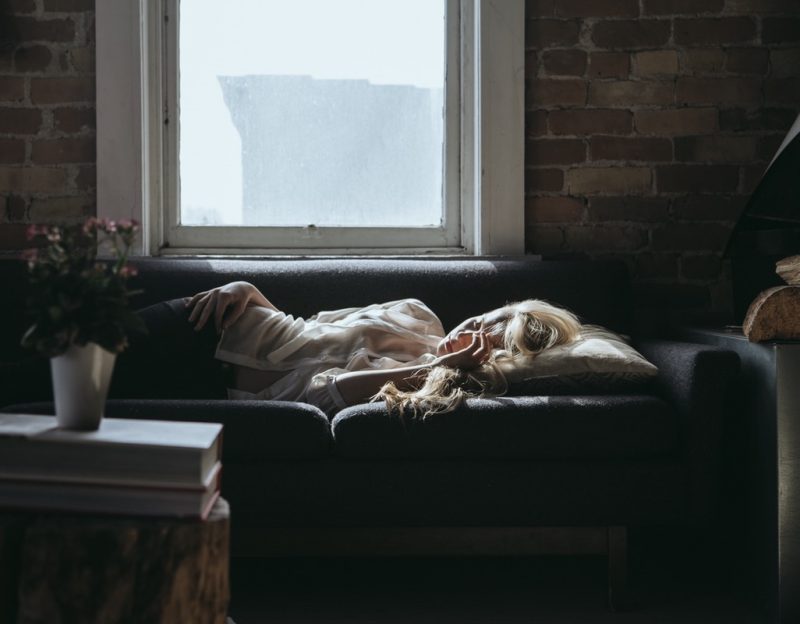If feeling rested and energized seems more like a long lost dream, then it might be time to start looking at your sleep habits. Sleep is not a luxury, it’s a necessity. Lack of sleep can contribute to feelings of depression (there’s a reason why sleep-deprivation is a torture technique!) and also impairs our body’s ability to repair and rebuild, weakening our immune system.
So how do we balance the reality of our lives with work, social demands and running a household, with our physiological need for rest? Part of the equation is focusing on quality, so here are a few ways you can make the most of the sleep you do get:
Find your rhythm.
We all have a circadian rhythm – an internal biological clock that sets our days and nights into a cycle. Our rhythm is controlled by a series of hormones and external cues. When we work within our natural rhythm, the energy of our waking times and restorative nature of our sleeping times are maximised.
The thing is, we can change our clock and condition ourselves into a pattern that isn’t ideal for our body. That’s why we can get hit so hard with jet lag or by working shiftwork, as our body has already become accustomed to a pattern that is different from what it naturally needs. The good news is that we can also condition ourselves back to a preferred internal rhythm by making new habits around sleeping and waking.
Your best times
We all know that most adults need somewhere between eight to ten hours of sleep a night, but not all eight hours are equal! Going to sleep at 2am and waking at 10am is very different to going to sleep at 10pm and waking at 6am. And despite how hard it may be to get out of bed at 6am, we all know that we will have more energy than if we wake at 10am.
Generally speaking, earlier to bed is better as it more naturally fits with our body’s preferred daily rhythm. How much earlier varies between each person, but a good rule of thumb is to shoot for a bedtime between 9pm and 11pm.
Get into a routine
Part of being an adult is that we don’t have forced bedtime routines anymore right? Well, there’s a reason we had them when we were younger (and why most older people tend to return to them). Having a slow bedtime routine allows your mind and body to unwind from a day of work and activity. You may have already noticed that when you plop straight into bed after a full-on activity it takes a lot longer to turn off your mind.
Give yourself a bedtime routine that includes cues to help you mentally and physically unwind and prepare for deep sleep. Intentionally transitioning into sleep with a nighttime routine can help prevent those middle-of-the-night insomnia bouts. This allows more relaxed and restorative sleep and brings a calming closure to the day.
Some things to consider for an adult bedtime routine are:
- Dimming the lights around the house
- Forgoing television late at night
- Sipping a cup of calming herbal tea, like chamomile
- Jotting down your thoughts with a journal writing session
- Reading material that helps you tune out engaging thoughts and calms your mind
Calm down your bedroom
One of the most neglected rooms in a home is the master bedroom. We tend to focus our attention on the areas visitors will see and leave the behind-the-scenes rooms in disarray. Think about your bedroom and whether it promotes, or prevents, restfulness.
Put some thought into how you can create a place of retreat, renewal and comfort in your bedroom. Swap out the TV or computer for soft lighting and the speakers for soft music. Hang soothing pictures. Buy the best sheets and pillows you can afford.
Close your eyes, and imagine walking into a room at a retreat or a bed and breakfast that completely delights you. The elements in that room might be surprisingly easy to duplicate. Could it be the tidiness of the space, the colour on the walls, the style of decor? Use this as a guide to making your bedroom a room that replicates those feelings.
Watch the energy crutches
Check your amount of caffeine and sugar intake. How we each respond to these things varies, but think of caffeine and sugar as energy loans. We know that financially, it’s not wise to rely on loaned money day in and day out, because it will set us up for financial ruin. Similarly, when we rely on caffeine and sugar day in and day out to meet our energy needs, our body is going to pay the price – usually in the form of burnout, sickness, sleep disruptions, and mental stress.
Work with it.
Let’s face it, there is no strategy that will guarantee the rest you truly need every night. So if you are having a particularly busy time, be gentle with yourself and creatively find ways to rest where you can. Be kind to yourself and don’t take on too much. The housework, the shopping and the washing can wait until you’ve put your feet up and recharged your batteries.






I don’t sleep well due to pain from some health conditions but we have started going to bed really early (like about 8pm) and talking etc (ok sometimes watching a movie), but trying to get to sleep earlier than 11pm. I’m up at 6am every morning for work and always feel tired due to lack of quality sleep
With an 8 month old, sleep is hard to come by, but when I do get a chance, I’m out like a light. These are good to know though to get my self back into better sleep patterns once she’s a bit older and is sleeping through the night.
I definitely need to sort out my bedroom, it looks like a dumping ground at the moment… 🙁
I don’t have caffeine after 4pm. That definitely helps me with my sleep at night. Turning off my brain is the hardest part. Also you do need to be very careful with mobile phones and devices. Their backlight can sometimes wake you up/re energise you when you should be calm and sleepy.